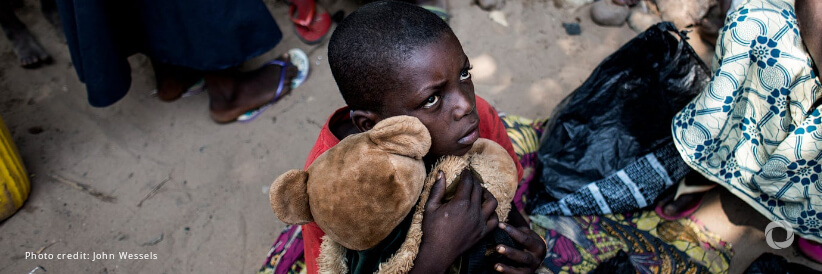Over 450,000 people are left without shelter, food, or water in the Democratic Republic of Congo (DRC) following the destruction of thirteen displacement sites in Goma, Oxfam warns. The crisis is increasingly alarming following the takeover of Bukavu, the capital city of South Kivu while funding cuts hinder the capacity of remaining humanitarian organizations to respond.
A surge in fighting has forced thousands of people to leave the displacement sites, many of which were destroyed or looted in the aftermath of the conflict. Many are now seeking shelter in overcrowded churches and schools in Goma. Many families are going back to their villages, only to find their house in shamble and struggling with immense needs. The fall of Bukavu has triggered a mass population movement, deepening the humanitarian crisis.
An Oxfam staff in Minova, located 45 km south-west of Goma, said: “The displaced people are returning en masse, there’s a lot of movement and the needs are enormous because the response has to be put in place and it will take time. Many are afraid to return to the village where they have already been attacked. People are traumatized. 25 cases of cholera have been recorded this week. There’s also Mpox. It’s a catastrophe. People are going to die.”
The ripple effects of the US funding cuts are dramatically affecting these communities because USAID was the leading donor in the DRC and most aid groups were relying on their funding to provide lifesaving aid.
See also: 🔴 LIVE UPDATES | U.S. executive order on foreign aid pause and its impact
“We are forced to repair shattered equipment while people in desperate need go without help. Even worse, when the sites are finally up and running again, we may still be unable to assist them, as US aid cuts have put everything at risk. Unless the international community steps in, this crisis will spiral beyond control,” said Manenji Mangundu, Country Director of Oxfam in DRC.
Three displacement sites in Rusayo (Goma), where Oxfam assists over 100,000 people, have been completely emptied. Water tanks, latrines, showers, and water pipes were destroyed and septic tanks were left open. With little access to clean water and hygiene sanitation, the health risks are increasing as cases of measles, cholera, and mpox spread, straining an already fragile healthcare system.
Families and communities are also struggling to get cash to buy food or return home. Following intense fighting over the last weeks, banks in Goma remain closed and money agents are operating at limited capacity. On top, prices are skyrocketing and pushing many families to the limit.

